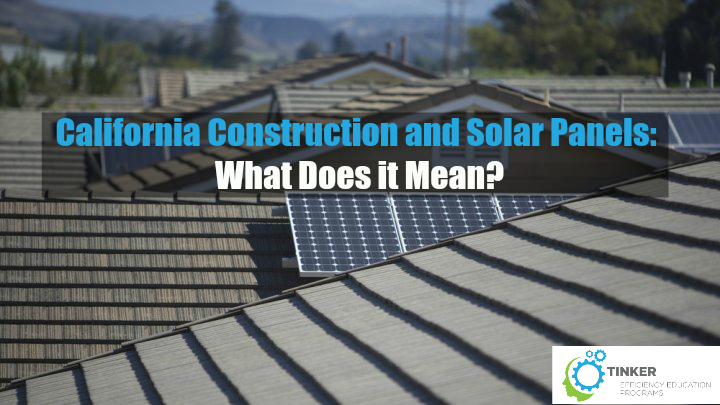California Construction and Solar Panels: What Does it Mean?
California recently became the first state in the country to require solar panels on all newly-constructed homes.
While the rules aren’t in place just yet (they will be starting in 2020), many people are wondering what it will mean not only for homes but how will it impact the environment?
The goal of this new law is to make at least half of California’s used energy renewable. This goal goes hand-in-hand with a bigger climate change goal that the state is trying to achieve by 2050.
If you live in California, what can you expect from this kind of construction? And, how will it impact the rest of the country?
What Does it Mean for Housing Costs?

The problem some Californians have with this new initiative is that it’ll significantly increase the cost of building a home. Unfortunately, it already costs quite a bit of money to build and/or buy a home in California. So, it’s understandable why some people are concerned about the increasing prices in the housing market.
This isn’t just a problem for home builders and buyers, but for anyone who has to deal with new home construction. A prime example is Habitat for Humanity, who relies on donations to construct new homes.
The good news?
In the long run, the costs will likely even out. With solar panels installed on a home, energy costs for the people living there will be significantly lower. While this is a savings that will add up over many years, you will eventually get that money “back” in what you’re saving each month.
What Does it Mean for Renewable Energy?

The pros and cons of this new law will likely be dragged out for quite some time. Obviously, the biggest drawback is the cost to homeowners and anyone who is affected by home construction. But, California is taking a huge step in renewable energy.
The state already leads the country in solar energy with about 16% of its electricity coming from solar panels. This law shows the rest of the country that it’s not good enough to remain stagnant when you can do more.
California is setting an example for the rest of the country, and this law can create an incredible impact for the state. One of the major accomplishments that is expected with this law is the reduction of greenhouse gases. The state has a goal of decreasing greenhouse gases by up to 40% by the year 2030.
The Future of Home Construction



